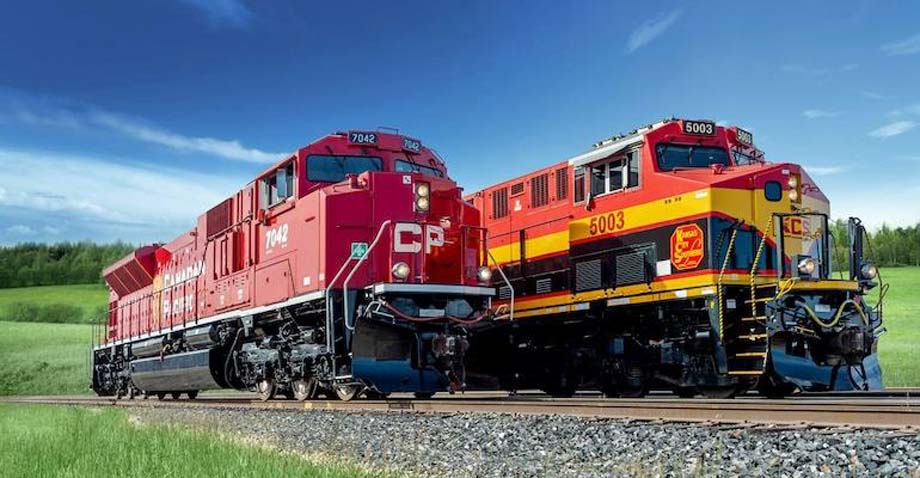
London England
Lazaro Cardenas Mexico - The Panama Canal has hit the headlines in recent weeks with it first
announcing a reduction in maximum daily transits to 32 and then that the neo-panamax containership Ever Max forced to
unload 1,400 containers to meet draught restrictions in the waterway.
A lack of rainfall in the canal watershed, even in the rainy season, leaves the waterway facing an intense water
shortage to which there may be no quick fix.
In the face of continued problems shippers and carriers will likely seek alternatives which is where CPKC believes it
can step in.
CPKC was formed in April this year out of a merger of Canadian Pacific and Kansas City Southern creating a single line
railway connecting Canada, the US, and Mexico.
Speaking to Seatrade Maritime News Corey Heinz, Managing Director Sales for CPKC, explains that the combination of the
two businesses opened up the gateway port of Lazaro Cardenas in Mexico into the US Gulf and the US Midwest markets
directly, as well as Class 1 rail connections into Northeast and Southeast destinations.
"We're able to offer this solution where a shipper can avoid maybe having their cargo taken off the vessel, or
restricted in cargo weight, and actually load onto an Asia service coming directly in the Lazaro Cardenas, discharging
there and railing into the Houston, Dallas, Kansas City, and Chicago markets," Heinz says.
Transit times into Houston and Dallas from Lazaro Cardenas are five and six days respectively.
He says this creates an advantage in terms of transit time versus using the Panama Canal which for destinations such
as Dallas can be up to 20 days, and a stability in terms of planning as there is no concern about low water
levels.
Stability of Service
"I think that is one area that we as CPKC are really starting to focus on is shippers who want to have stability
in terms of their supply chain and knowing that whatever they ship is going to actually move, and then knowing that
they're going to have a transit savings going into these different markets."
The rail provider also sees it as beneficial to shipping lines which could potentially operate shuttle services into
Lazaro Cardenas from Asia and connecting into CPKC's network, and into markets such as Houston with reduced transit
times, and without having to pay transit fees for the Panama Canal.
In terms of terminal infrastructure in Lazaro Cardenas there are two major international terminal operators, Hutchison
Ports and APM Terminals with 2 million and 1.2 million teu in capacity respectively and on dock rail
connections.
Early Stages
At present services are in their early stages and CPKC is running a single dedicated train about once per month for one
vessel owner that's making a dedicated call with around 500-600 containers on that service.
Heinz says there is significant capacity to increase services on the rail side.
"We've got a lot of room to have dedicated daily departures going from these facilities."
Most of the major carriers call Lazaro Cardenas on one or more Asia-Latin America service but use it as a call for
Mexican cargo not to reach other markets.
"So, our work with them is around expanding that horizon," Heinz says.
Secuirty Concerns
Security is a key question in terms of transiting cargo through Mexican ports and one that Heinz says he gets
"asked in every meeting".
He states that the Lazaro gateway is on a par if not better than North American gateways for security.
For the railroad piece he says, "We have got a large security control centre that oversees all of Mexico from
Monterey. We have over 8,000 security and law enforcement officers within the railroad who help work in the Mexico
rail space to ensure that the traffic is moving and secured."
It also carries out drone inspections.
Marcus Hand.
(likely no image with original article)
(usually because it's been seen before)
provisions in Section 29 of the
Canadian Copyright Modernization Act.
